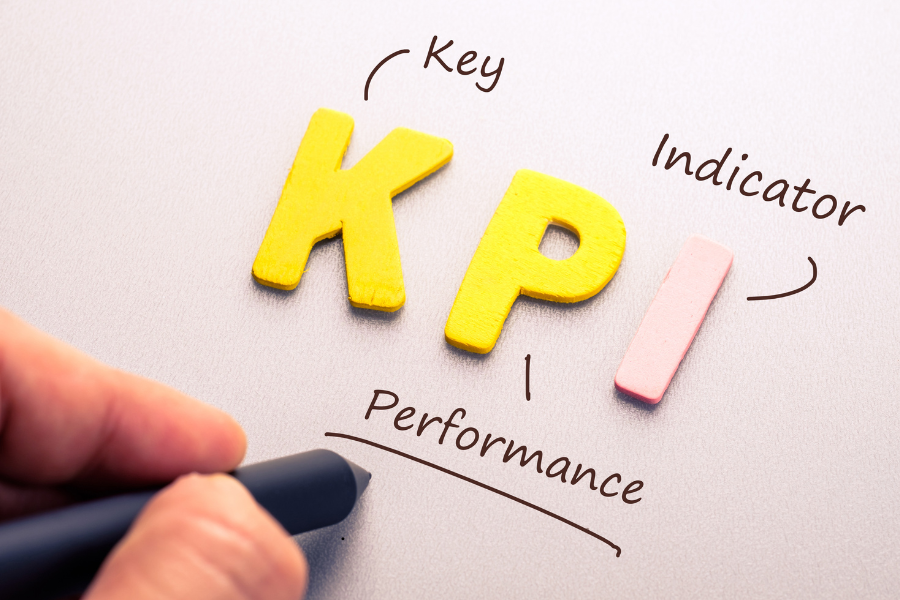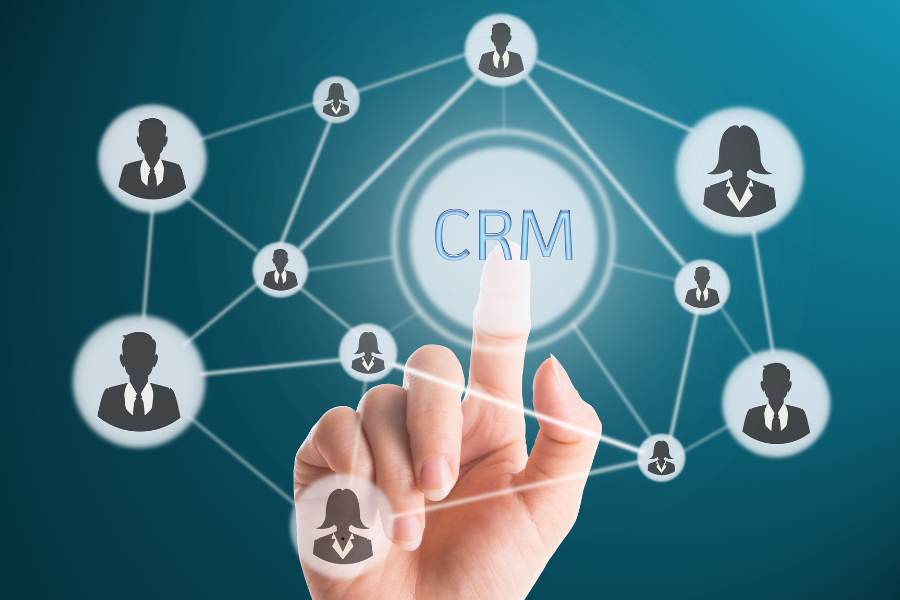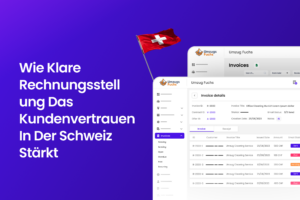A CRM system is the backbone of successful customer management strategies, and small businesses in Switzerland can benefit significantly from implementing such a system. We understand that optimized customer engagement, organized sales funnels, and targeted marketing measures are crucial in a competitive market. In this article, we will explain why a CRM system is important for small businesses in Switzerland, how it supports growth, and which practical steps are necessary to unlock the full potential of a CRM system for long-term success.
Understanding CRM: A Swiss Perspective
A CRM system centralizes customer data, tracks interactions, and provides valuable insights into buying behavior. In Switzerland, precise records and fast service play an important role in a company’s reputation. An effective platform helps small businesses maintain quality standards, adapt to market changes, and satisfy demanding customers. By combining lead management, communication logs, and performance indicators, a CRM system ensures that all departments work towards delivering consistent and high-quality experiences.
The Landscape of Small Businesses in Switzerland
Switzerland is known for precision, excellence, and strong local customer relationships. Many small businesses rely on long-term relationships based on mutual trust, which makes a CRM system essential for preserving these connections. Even sole proprietors must balance administrative tasks with daily customer care. A centralized solution becomes an indispensable ally, especially when teams are small. By using a CRM system, local businesses remain agile and responsive, even under intense competition.
Key Growth Challenges
Managing limited budgets, attracting qualified leads, and retaining loyal customers are challenges that small businesses in Switzerland often face. Traditional methods like spreadsheets and manual contact logs can quickly become inefficient. A CRM system addresses these challenges by offering real-time data updates, automated task reminders, and clear reporting features. This allows small businesses to keep up with larger competitors, maintain consistent service, and ensure steady, long-term growth in the Swiss business environment.

Benefits of a CRM system
Implementing a CRM system transforms daily operations and promotes organized communication and timely responses. Instead of juggling scattered notes or different software tools, small business owners have access to a unified platform that manages sales funnels, customer data, and customer inquiries. This simplified approach saves valuable time and allows Swiss entrepreneurs to maintain deeper relationships. Ultimately, a CRM system becomes the engine that drives stronger brand building, higher customer satisfaction, and steady revenue growth.
Building Stronger Customer Relationships
A CRM system documents every customer interaction and captures preferences and feedback that inform personalized follow-ups. In Switzerland, personalization often determines whether a customer remains loyal or switches to another provider. By systematically tracking conversation threads, the system ensures that no detail is lost. This approach enables small businesses to send timely updates, address concerns quickly, and consistently provide memorable service. Stronger connections built on trust lead to increased customer loyalty and word-of-mouth.
Optimizing Business Processes
Complex workflows can slow down progress and frustrate customers. A CRM system speeds up core processes by automating administrative tasks such as scheduling appointments, invoice reminders, and progress tracking. For small Swiss businesses known for their precision, these optimized processes enhance reliability. Employees can focus on meeting customer needs instead of dealing with recurring paperwork. With resources properly allocated, the company remains efficient throughout every sales cycle and ensures continuous growth without overburdening staff or compromising quality.
Data-Based Decision Making
In the Swiss market, informed decisions are of crucial importance. A CRM system collects and organizes key metrics such as conversion rates, sales trends, and customer satisfaction scores. Executives can quickly assess which marketing campaigns are successful, where bottlenecks arise, or how seasonal fluctuations affect revenue. With these insights, businesses can adjust their strategies almost in real time. By using data-driven decision-making, Swiss businesses can surpass less well-organized competitors and evolve with changing customer demands.
Essential Features You Should Look for in a CRM System
Not all platforms offer the same tools, so it is essential to identify key features before investing in a CRM system. Look for solutions that manage contact organizations, track pipeline status, automate daily communication, and generate custom analytics. These elements ensure that small businesses maintain a comprehensive overview of their customers, optimize sales funnels, and respond to leads in a timely manner. Ultimately, a robust set of features drives the efficiency of small Swiss businesses to new heights.
Choosing the Right CRM System
Choosing a CRM system means aligning immediate needs with long-term goals. We recommend reviewing current workflows, defining necessary features, and involving key stakeholders before making a purchase. Small businesses in Switzerland may place high value on compliance, data security, and localized support. Verifying the long-term viability of a platform helps avoid frequent changes and costly downtimes. By aligning system capabilities with growth ambitions, a company lays the foundation for sustainable success.
Scalability and Integration
A good CRM system should grow with a company’s changing needs. Swiss startups that eventually expand to multiple branches may require advanced features like multi-currency support or third-party app integrations. Systems that offer plug-and-play modules allow everything from email marketing to automated billing tools. Seamless integration minimizes workflow interruptions and ensures that the CRM remains a valuable asset as the company grows.
Security and Data Protection
Strong data protection is essential in Switzerland, where privacy standards are especially high. A CRM system must encrypt stored information, enforce role-based permissions, and log user activities for audits. These security measures protect customer trust and shield companies from legal liabilities. Look for providers who comply with local and international regulations, such as the GDPR.
Effective Implementation Strategies
Rolling out a CRM system requires structured planning to ensure a smooth launch. Start with clearly defined goals, like reducing response times or improving lead conversion. Identify data sources that need consolidation and refine processes where necessary. A gradual rollout combined with thorough training sessions eases onboarding. Setting clear milestones and success criteria helps maintain momentum. With careful preparation, small Swiss businesses can quickly integrate a CRM system into their daily operations.

Setting Clear Objectives
Goals serve as guiding principles throughout the implementation process. For example, a Swiss retail business might aim to increase average order value through targeted cross-selling incentives within the CRM system. By defining specific goals, teams can track measurable outcomes like revenue growth or improved customer retention. Clear goals also help managers evaluate return on investment (ROI). When everyone knows the benchmarks, success becomes more tangible and easier to replicate across departments.
Data Migration and Cleanup
Transferring data from spreadsheets or old software into a CRM system can be challenging. We recommend reviewing records, standardizing formats, and removing duplicates or outdated entries before migration. Consistent naming conventions and accurate fields simplify future reporting. For detail-oriented Swiss businesses, these steps prevent confusion and improve performance analysis. Proper data preparation reduces errors, avoids delays, and lays a solid foundation for smart, data-driven decisions.
Encouraging Employee Adoption
A CRM system only delivers results if employees use it correctly. Providing step-by-step guides, interactive workshops, or real-life case studies can boost enthusiasm. Incentives, like performance-based bonuses tied to system use, promote active participation. It’s important to show how the platform simplifies tasks instead of adding extra work. In a culture where punctuality and consistency matter, employees who see real benefits are more likely to adopt the CRM system willingly and consistently.
Measuring the ROI of a CRM System
Assessing ROI means comparing system costs with improvements in lead conversion, reduced admin tasks, and higher customer satisfaction. Small Swiss businesses often track invoice cycles, churn rates, and upselling success to measure ROI. Over time, a CRM reveals patterns in sales funnels and identifies key opportunities for additional revenue. When linked to lower overhead, these insights provide business owners with solid proof to justify further improvements.
Key Performance Indicators (KPIs)
KPIs are directly tied to the goals set before implementation. Common KPIs include the number of leads generated, the time to close a sale, and customer retention rates. A CRM with customizable reporting options allows Swiss entrepreneurs to choose KPIs that match their specific goals. Monitoring these metrics monthly or quarterly highlights areas that need attention. Timely action keeps performance on track and preserves the system’s value.

Long-Term Impact on Growth
While immediate benefits like streamlined operations are notable, the true power of a CRM lies in long-term growth. By continuously analyzing customer data for trends, businesses can improve products and expand their market presence. Engaged customers often become brand advocates, boosting organic referrals. Over months or years, these cumulative effects build resilient Swiss businesses capable of weathering economic fluctuations. This long-term stability is where a CRM system proves its real worth.
Conclusion
A reliable CRM system helps small Swiss businesses build lasting customer relationships, optimize key workflows, and analyze performance in real-time. By centralizing communication and using insights from every interaction, entrepreneurs can refine strategies and stay competitive. We recommend exploring solutions that match your business needs and ensuring the CRM system meets Swiss standards and scales smoothly. The result is a more efficient, customer-focused business ready for long-term success.
FAQs
Is a CRM system too expensive for small Swiss businesses?
A CRM system can be budget-friendly if its features align with expected benefits, like saving admin hours and increasing conversions. Even entry-level or cloud-based plans cut costs by reducing manual work. When owners compare costs with measurable benefits, they often find such solutions pay off quickly.
Can a CRM system improve team collaboration?
Absolutely. A CRM system brings every team member together around the same data, breaking down silos and reducing communication gaps. This clarity enhances problem-solving and supports consistent communication, key to building trust in Switzerland’s quality-driven market.
How long does it take to see results from a CRM system?
The timeline varies depending on data complexity and how quickly staff adopts the system. But many Swiss businesses notice improvements within weeks. With continuous use and careful tracking, gains in efficiency and revenue build steadily over time.
Should a CRM be cloud-based or on-premises?
Cloud-based CRMs have lower upfront costs and offer automatic updates, making them ideal for smaller teams. On-premises solutions give more control but require more IT resources. In Switzerland, where data protection is critical, companies must ensure their deployment model complies with regulations.
How does a CRM system support Swiss data protection laws?
Most CRM providers use encryption, secure data centers, and role-based access to comply with Swiss regulations. System logs track changes and ensure accountability during audits. Regular updates and region-specific security features strengthen ongoing compliance.





